#Human Psychology
Text
...Can we talk more about how the US economy basically relies on the psychology of resource scarcity to function as an economic model?
"Resource scarcity" is a situation where we lack sufficient, reliable, and/or consistent access to one or multiple things critical for human development and livelihoods, whether it's food, housing, money, community love, sleep, comfort, bodily autonomy and freedom, the freedom of expression, the freedom to authentically engage with the world, or something else.
Chronic resource scarcity does something very fucky with our psychology. We stop operating from a place of curiosity and start operating from the desire to acquire, to pursue, and to win. Our focus narrows. We stop thinking of things in terms of interrelationships, and start thinking of things in terms of "how do I get from point A to point B?"
USAmerican culture tends to paint a "competitive nature" as a noble characteristic. But I'm starting to wonder if the kind of thrill-seeking behavior we see associated with competition is not just the behavior of a starving persistence hunter.
(Even the rich experience scarcity, in the form of the fact they constantly have to earn and maintain their worth in order to stay in their communities.)
When people have resource security, they are at ease. They are open, relaxed, inviting of silliness and playfulness, and their priorities turn to activities of personal development, innovation, and life-enrichment.
Operating from resource scarcity makes people less discerning, less considerate, more emotionally volatile, more one-track-minded, and far more spendthrifty. It's not a moral or intellectual failing on our part either. It's literally instincts kicking in because we're regularly lacking something we need to maintain our human condition.
I think the reason why many people defend keeping a competition-based society is because they want to secure their ability to gather resources, not realizing that social animals aren't interested in being competitive with members of their own species unless resource scarcity is involved.
I already figured "We can't afford to have universal basic income" didn't actually mean "Universal basic income costs too much."
But now I'm beginning to think it means "Universal basic income would change US consumer behavior patterns, which would change the mechanics we've developed around money-making, and this would render our current profit-making strategies obsolete."
And I think we should be talking about this psychological fuckery 24/7.
493 notes
·
View notes
Text

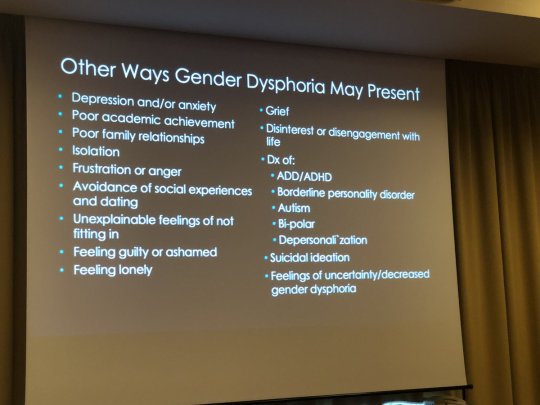
[ Source: EPATH Conference 2019. ]
Apparently being a regular teenager is a disorder requiring medical treatment and the removal of body parts. Not only are you "trans" if you don't fit a 1950s Barbie/G.I. Joe stereotype, you're "trans" if you don't fit a 1950s "golly, gee" soda shoppe "Leave It To Beaver" stereotype.
This is the same tactic psychics use to tell you your fortune, and astrologers use to convince you that distant stars reflect your personality. It's called the Forer Effect, or Barnum Effect.
To really drive home the cult programming, any time you're feeling better, that's how you know you've gotten worse.
For political and ideological reasons - for example, one presenter actually claims that children are being "misdiagnosed" as autistic when they're actually trans - they've flipped the symptom and the cause.
This is more accurate:
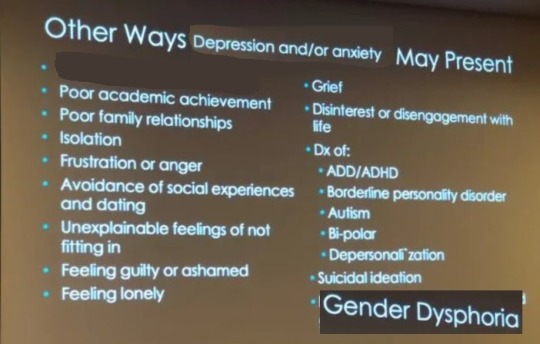
#Wilfred Reilly#gender cult#queer theory#gender ideology#mental health#mental health issues#gender dysphoria#gender anxiety#puberty#unethical#medical scandal#medical malpractice#ideological capture#psychology#human psychology#sex trait modification#genderwang#religion is a mental illness
735 notes
·
View notes
Note
I'm a paleoanthropologist and there's an old dude (i think he's dead now, but there was an old dude) who would die on the hill that neanderthals were brutish cave thugs who didn't have language, didn't wear clothes, and hit each other with stone clubs.
Wouldn't be dissuaded no matter how much new evidence we discovered.
That quote from that skeleton crew show reminds me of him.
man, people are just real bad at changing their minds when presented with new evidence, huh
it's especially alarming when it's a scientist...
231 notes
·
View notes
Text
Express not Repress


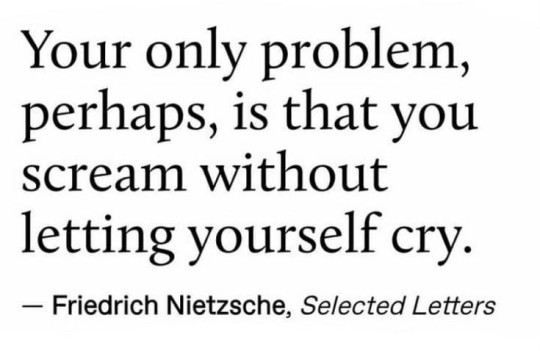

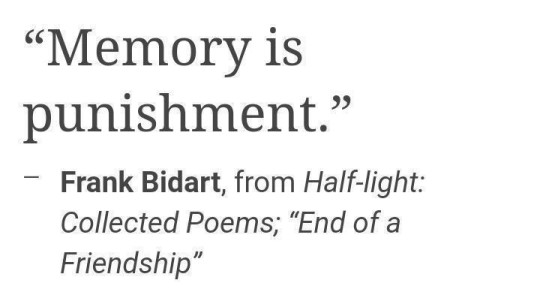



#human psychology#web weaving#web weave#art#communication#self love#sef discovery#memory is punishment#no regrets#desire#i swallow#ernest hemingway#frederick nietzsche#parallels#life#scream#express not repress#childlike rage
77 notes
·
View notes
Text
On the fire sibling contradiction
Zuko and Azula being abused and them having privilege is not the contradiction it might seem.
The very fact that they were born into the very top of their society meant that no one really dared to intervene. It became even worse when Ursa disappeared and Ozai become Fire Lord, a title that holds such a ridiculous degree of absolute power that even Iroh didn't dare to stop it directly.
Even the crew of Zuko's ship just expressed they were sorry for Zuko, not that Ozai did do anything bad. Nor did anyone criticize him for sending his underage daughter Azula into active war zones or encourage behaviors in her that would be unacceptable anywhere else.
Dunno if any of this is in any way a new point but I just felt like saying it.
227 notes
·
View notes
Text
Traumatic Events
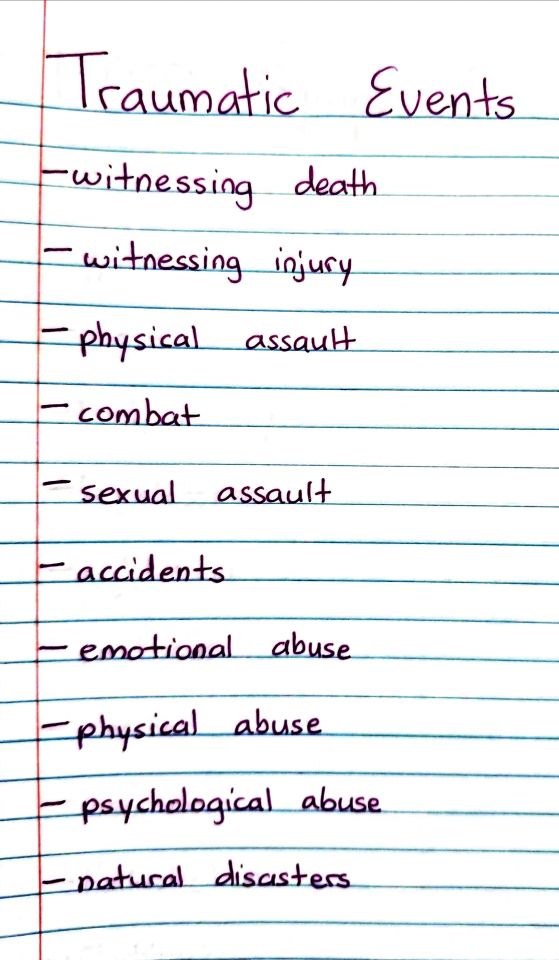
Patreon
#studyblr#notes#medblr#medical notes#med notes#psychology#psychology notes#psych#psych notes#psychiatry#psychiatry notes#abnormal psychology#abnormal psych#human psychology#human psych#trauma#trauma psychology#mental health
10 notes
·
View notes
Text
The man himself 🫠👏
Carl Jung
youtube
8 notes
·
View notes
Text
I take people into deep waters and make them discover themselves
5 notes
·
View notes
Text
Love is getting lost
In the world where the top priority is to consume, people tend to look over each other, human connections, and their feelings. Why is it more important for these LITERAL CHILDREN to have that stupid cup than to have real friends?
I tell you why, because these new generations are raised to view people as objects, exactly how the capitalist system views them. Instead of prioritising relationships and connections, people are prioritising having someone to show off or to just fuck.
These people dont realise that other humans have their own thoughts, personalities, and views because most of them are taught to hide them, bullied into being like everybody else. People shame others for going on a date instead of going straight to the bedroom.
Without being taught how to properly love and be loved, i wouldn't be surprised if the new generations wouldn't have any idea of what a relationship or friendship is, and they would be just using each other.
I can confirm this theory by looking at how children and teenagers and even some young adults completely lack respect for people other them themselves.
#i hope this made you as uncomfortable as it made me#spilled thoughts#writers and poets#late night thoughts#my mind#my thoughts#gen z#gen alpha#anti capitalism#love#emotions#human psychology
13 notes
·
View notes
Text
19 TIPS FOR MAKING A GREAT FIRST IMPRESSION
19 TIPS FOR MAKING A GREAT FIRST IMPRESSION and
Becoming a better conversationalist:
1. Become genuinely interested in other people.
2. Smile.
3. Remember that a person's name is the sweetest and most important sound in any language.
4. Be a good listener. Encourage others to talk about themselves.
5. Talk in terms of the other person's interests.
6. Make the other person feel important, and do it sincerely.
7. Avoid criticism, condemnations, and complaints.
8. Make the other person feel valued and appreciated.
9. Show respect for the other person's opinions.
10. Admit your own mistakes.
11. Begin in a friendly way.
12. Find common ground.
13. Let the other person do a great deal of the talking.
14. Let the other person feel the idea is theirs.
15. Try honestly to see things from the other person's point of view.
16. Be sympathetic to the other person's ideas and desires.
17. Appeal to the nobler motives.
18. Make your ideas more exciting.
19. Present a challenge that they might enjoy.
Book; How to Make Friends and Influence People –Dale Carnegie

#books and reading#books & libraries#books#positivity#personal development#self help#growth#human psychology#communication#conversation
12 notes
·
View notes
Text
By: Eric W. Dolan
Published: Jan 3, 2022
Cognitive performance is slightly reduced among those with higher levels of celebrity worship, according to a new study published in BMC Psychology.
“Interest in the topic of celebrity worshipers spans almost two decades. From several studies, over that period, research showed a weak to moderate tendency for those who showed the strongest admiration for their favorite celebrity to have lower cognitive skills, using a variety of cognitive measures,” explained study authors Lynn E. McCutcheon, Ágnes Zsila, and Zsolt Demetrovics in a joint statement to PsyPost.
“However, most of these studies did not control for a variety of extraneous variables. The current study did control for several possibly relevant variables.”
In the study, 1,763 Hungarian adults completed a 30-word vocabulary test and a digit symbol substitution test, a validated assessment of fluid intelligence. The researchers also collected data about the participants’ self-esteem, current family income, material wealth, and highest level of education.
Celebrity worship was measured using a scientific questionnaire known as the Celebrity Attitude Scale. The scale asks participants the extent to which they agree or disagree with statements such as “I often feel compelled to learn the personal habits of my favorite celebrity,” “I am obsessed by details of my favorite celebrity’s life,” and “If I were lucky enough to meet my favorite celebrity, and he/she asked me to do something illegal as a favor I would probably do it.”
Even after controlling for demographic and socioeconomic variables, the researchers found that high scores on the Celebrity Attitude Scale were associated with lower performance on the two cognitive ability tests.
“We found a weak tendency for those who showed the strongest admiration for their favorite celebrity to have lower cognitive skills, suggesting that the earlier results were not due just to chance,” the authors of the study said. “Our results also support previous findings showing that excessive behaviors such as celebrity worshiping can possibly impair cognitive functioning, presumably due to the increased focus and energy invested in this behavior that becomes dominant in the individual’s life.”
“Although celebrity admiration seems not to be a strong precursor of poorer cognitive performance, high levels of admiration can be regarded as one contributing factor to lowered performance in tasks requiring cognitive effort, independently from education or age.”
But it is unclear whether celebrity worship is the cause or consequence of reduced cognitive ability. For example, it “may be that individuals with higher levels of cognitive skills are more likely to understand the marketing strategies behind a famous person,” and thus less vulnerable to celebrity worship, the researchers explained. But it is also possible that celebrity worship functions like an addictive behavior and requires cognitive effort to be maintained.
Previous research has found that celebrity worship is associated with addictive and problematic social media use.
“Future studies should seek further support for our suggestion that the cognitive effort invested in maintaining the absorption in a favorite celebrity may interfere with the person’s performance in tasks that require attention and other cognitive skills,” the authors told PsyPost. “Although our research does not prove that developing a powerful obsession with one’s favorite celebrity causes one to score lower on cognitive tests, it suggests that it might be wise to carefully monitor feelings for one’s favorite celebrity, keeping in mind that most celebrities are human beings who have some flaws just like average persons have.”
The study, “Celebrity worship and cognitive skills revisited: applying Cattell’s two-factor theory of intelligence in a cross-sectional study“, was published November 8, 2021.
--
Abstract
Background
Almost two decades of research produced mixed findings on the relationship between celebrity worship and cognitive skills. Several studies demonstrated that cognitive performance slightly decreases with higher levels of celebrity worship, while other studies found no association between these constructs. This study has two aims: (1) to extend previous research on the association between celebrity worship and cognitive skills by applying the two-factor theory of intelligence by Cattell on a relatively large sample of Hungarian adults, and (2) to investigate the explanatory power of celebrity worship and other relevant variables in cognitive performance.
Methods
A cross-sectional study design was used. Applying an online survey, a total of 1763 Hungarian adults (66.42% male, Mage = 37.22 years, SD = 11.38) completed two intelligence subtests designed to measure ability in vocabulary (Vocabulary Test) and digit symbol (Short Digit Symbol Test). Participants also completed the Celebrity Attitude Scale and the Rosenberg Self-esteem Scale. Subjective material wealth, current family income and general sociodemographics were also reported by participants.
Results
Linear regression models indicated that celebrity worship was associated with lower performance on the cognitive tests even after controlling for demographic variables, material wealth and self-esteem, although the explanatory power was limited.
Conclusions
These findings suggest that there is a direct association between celebrity worship and poorer performance on the cognitive tests that cannot be accounted for by demographic and socioeconomic factors.
==

#Eric W. Dolan#psychology#human psychology#celebrity worship#celebrities#intelligence#religion is a mental illness
22 notes
·
View notes
Note
My brother's ex-fiancee didn't think that penguins were birds. I couldn't believe it when she said that.
aha! here we get to another pitfall of human psychology!
when we put things into mental groups, like the group of "bird", we tend to have an archetype for that group in our brain. For birds, that's usually a songbird - something like a robin or a sparrow, maybe a pigeon. Small, flighted, perches on things. Things that fall outside of that archetype, if you're not familiar with them, don't compute - and we refuse to allow them into the grouping.
This is why the grouping thing is such a problem - our archetypes can never actually capture the diversity of a group we perceive, even if that group is a real thing. This is why stereotypes exist. This is why people still think of dinosaurs as lizards, because their archetype for dinosaur resembles a lizard more than a bird (even if it shouldn't). And this is why some people will refuse to believe that penguins or ostriches are birds.
we have to stop thinking that our brains are good at describing nature, because clearly, they are not.
184 notes
·
View notes
Text
Semi random musing
The reason no amount of debate, no matter how intense or outright hostile, on whether Azula deserves redemption or not can deter fans from writing metas, fics or even making comics, is in my opinion this:
Stories about good people becoming bad and bad people becoming good are older than most modern languages, older than writing, they've literally been around longer than forever and the fascination they hold hasn't lessened.
In fact, I'd argue that the fact that so many internal and external odds are stacked against her makes Azula's possible redemption MORE interesting and appealing.
Now, to counter some argument I recently heard:
Quote: It's important to show that not everyone can be redeemed and that not everyone can be saved through love. It's especially important that children be taught this!
Answer: We already have Zhao, Long Feng and Ozai, why condemn someone who still has the possibility of a chance? Plus, the comics clearly showed that insulting, attacking and punishing only made Azula worse and more dangerous. What did however work was when Ursa apologized and Zuko told her he'd always care about her. Her murderous rage instantly dissipated and she even dropped the letter that could land her back in the throne. As for lessons to kids, some kids can indeed be obsessive about a particular show but the vast majority watch other material too, read books and comics and not all of them have the same message. Kids ARE able to have their own opinion. Also, we should NOT outsource parenting to television or the internet. If you disagree with a certain message in a piece of fiction TELL your kids that the message is wrong and why. They are going to respect your authority even more if you respect their intelligence.
82 notes
·
View notes
Text
It's so interesting to me how obsessed we are, as a species, with Missing Person cases. Someone gets lost in the woods or stuck in a cave and a few days later it's national news, with hundreds of thousands of dollars spent on rescue attempts. I don't need to list any examples, I'm sure you can think of your own, that's how prevalent they are. The failed rescues are talked about for decades in podcasts and video essays, and the successful ones turn into blockbuster movies.
I think it makes sense. There's a very tangible and relatable horror to being lost and alone. It's ingrained in us, it's perhaps the most primitive fear: "Dying Alone in the Wilderness". We spend so many resources saving these people because we want to believe others would do the same for us were we to meet the same fate. That fear is universally relatable, one of the only things that can unite us as humans.
I'm not implying we shouldn't spend those resources, we obviously shouldn't just abandon people to the elements because it'd take too much effort to find them.
But I think it really highlights some of our most deeply set biases. It highlights how even as an "advanced" species, our base fear of Nature overwhelms us, causing us to appear as hypocrites.
What I mean is, why do we send hundreds of people to search for someone if they're lost in the woods, but if someone is lost in a city, with nowhere to go, they're often just cast aside, labeled homeless, and left to die alone under a bridge. Where are their rescue crews? Their national news coverage? Why is a life lost in the wild more valuable than a life lost in suburbia?
It's easily, tragically, explained. That kind of death isn't as relatable. We have no primitive monkey-brain fear of being abandoned in a city, we made those wilds ourselves. It's easier to rationalize, easier to dismiss. You have to consciously consider how terrible it would be to die alone in a city, it takes a moment of effort; it's not a pre-programmed fear.
I don't think it's actually as binary of a difference as I'm making it out to be, there are obviously more factors at play. For example, many homeless people are not really in contact with anyone, they can go missing and there's just nobody there to raise an alarm. It's tragic, but you can't blame innate human biases. I think the real indicator here isn't the lack of help we offer these urban cases, but how seriously we dedicate ourselves to the wild ones.
Idk, it's just interesting to me how we like to pretend we're an advanced species, how we're above our base instincts, beings of intellect and cognizance, but every so often you can look at us as a collective and point out where the monkey brain takes control.
3 notes
·
View notes
Text
After watching YouTube reactions to Buddy Daddies Ep 3, I again have to wonder why people have a more visceral reaction to animal abuse over child abuse. It's so weird. Is it just a western thing? Are we more desensitized to child abuse? Like, what is it?
26 notes
·
View notes